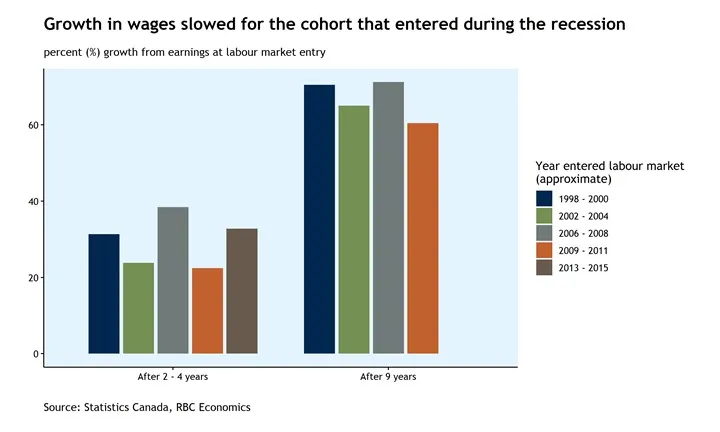Report on the United Kingdom’s Decision to Join the Multi-Party Interim Appeal Arbitration Arrangement (MPIA) and Its Implications for Sustainable Development Goals (SDGs)
Introduction
The United Kingdom (UK) has recently decided to join the Multi-Party Interim Appeal Arbitration Arrangement (MPIA), a move that has raised questions regarding its impact on international trade relations, particularly with the United States (US) and the European Union (EU). This report analyzes the decision, emphasizing its alignment with the Sustainable Development Goals (SDGs), especially those related to global partnerships and economic growth.
Implications for UK-US and UK-EU Trade Relations
- UK-US Relationship
- Bartels noted uncertainty about whether the UK’s MPIA membership would affect its relationship with the US.
- He suggested that the US might be less concerned about the MPIA than before, indicating a perception of stable trade relations between the UK and US.
- The UK appears confident that its trade relations with the US are sufficiently stable to proceed with MPIA membership.
- UK-EU Relationship
- There is a possibility that the UK prioritized its relationship with the EU over the US by joining the MPIA, although this is considered less likely.
Expert Perspectives on the UK’s Decision
- Simon Lester, President of WorldTradeLaw.net, described the UK’s decision as a pragmatic step to fully utilize World Trade Organization (WTO) dispute settlement mechanisms.
- Lester cautioned against interpreting the decision as a broader political alignment statement, emphasizing its limited scope compared to recent substantive trade agreements.
- A senior consultant familiar with the US Trade Representative’s stance indicated that the US remains focused on broader WTO reforms and bilateral trade deals, viewing the UK’s announcement as a minor issue amid larger priorities.
Alignment with Sustainable Development Goals (SDGs)
The UK’s decision to join the MPIA contributes to several SDGs by promoting fair and effective international trade dispute resolution and strengthening global partnerships:
- SDG 8: Decent Work and Economic Growth
- Enhances the stability and predictability of international trade, fostering economic growth.
- Supports the creation of fair trade environments that benefit workers and businesses.
- SDG 16: Peace, Justice, and Strong Institutions
- Promotes the rule of law in international trade through transparent dispute settlement mechanisms.
- Strengthens institutions by encouraging cooperation among WTO members.
- SDG 17: Partnerships for the Goals
- Demonstrates the UK’s commitment to multilateralism and global partnerships.
- Facilitates collaboration between countries to reform and improve the WTO system.
Conclusion
The UK’s accession to the MPIA reflects a strategic decision to enhance its engagement with the WTO dispute settlement system, supporting sustainable economic development and international cooperation. While the move’s impact on bilateral relations with the US and EU remains nuanced, it aligns with global efforts to achieve the Sustainable Development Goals by fostering stable, fair, and collaborative trade environments.
1. Sustainable Development Goals (SDGs) Addressed or Connected
- SDG 8: Decent Work and Economic Growth
- The article discusses trade relations, WTO dispute settlement, and bilateral trade deals, which are directly related to promoting sustained economic growth and productive employment.
- SDG 17: Partnerships for the Goals
- The focus on international trade agreements, multilateral cooperation through the WTO, and alignment between countries (U.K., U.S., EU) highlights the importance of global partnerships.
2. Specific Targets Under Those SDGs
- SDG 8 Targets
- Target 8.2: Achieve higher levels of economic productivity through diversification, technological upgrading, and innovation, including through a focus on high-value added and labor-intensive sectors.
- Target 8.3: Promote development-oriented policies that support productive activities, decent job creation, entrepreneurship, creativity, and innovation.
- Target 8.b: By 2020, develop and operationalize a global strategy for youth employment and implement the Global Jobs Pact of the International Labour Organization.
- SDG 17 Targets
- Target 17.10: Promote a universal, rules-based, open, non-discriminatory, and equitable multilateral trading system under the World Trade Organization (WTO).
- Target 17.11: Significantly increase the exports of developing countries, in particular with a view to doubling the least developed countries’ share of global exports.
- Target 17.16: Enhance the global partnership for sustainable development, complemented by multi-stakeholder partnerships that mobilize and share knowledge, expertise, technology, and financial resources.
3. Indicators Mentioned or Implied to Measure Progress
- For SDG 8
- Indicator 8.2.1: Annual growth rate of real GDP per employed person.
- Indicator 8.3.1: Proportion of informal employment in non-agriculture employment, by sex.
- For SDG 17
- Indicator 17.10.1: Worldwide weighted tariff-average.
- Indicator 17.11.1: Developing countries’ and least developed countries’ share of global exports.
- Indicator 17.16.1: Number of countries reporting progress in multi-stakeholder development effectiveness monitoring frameworks that support the achievement of the sustainable development goals.
4. Table: SDGs, Targets and Indicators
| SDGs | Targets | Indicators |
|---|---|---|
| SDG 8: Decent Work and Economic Growth |
|
|
| SDG 17: Partnerships for the Goals |
|
|
Source: politico.eu







